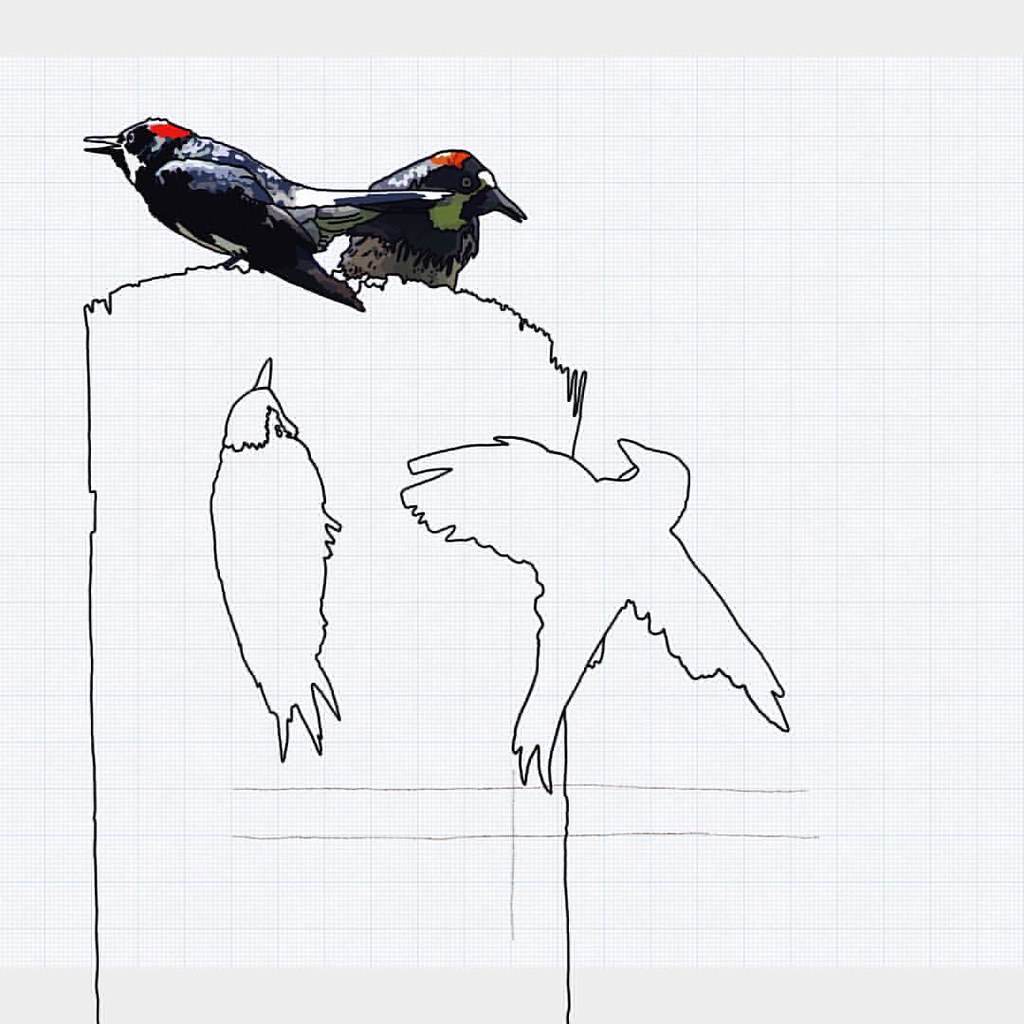
Image
By Buster Benson
Had a great weekend, but got a bit stuck on drawings. Doubting my choice of birds for #lifeofclodia. Here is the next drawing in progress, since I'm sleepy and can't finish. (Day 34 of #the100dayproject).
Course Introduction
Poetry of Witness is in some ways an amorphous term. Scholar Duncan Wu, within the anthology Poetry of Witness: The Tradition in English 1500—2001, defines the poet of witness as an “artist who confronts extremity—whether imprisonment, torture, or warfare.” U.S. poet Carolyn Forché states in the introduction to Against Forgetting that poetry of witness is a third space, “the space between the state and the supposedly safe havens of the personal.” More recent poets have suggested that by virtue of our screens and our globalized world, any of us today can experience extremity and thus become poets of witness to the injustices in our world. In terms of aesthetic and perhaps even inspirational considerations, Polish poet Zbigniew Herbert states in his poem “Five Men” that “the purpose of poetry must still be to ‘once again/in dead earnest/offer to the betrayed world/a rose.’” In this course, we will be interrogating the term poetry of witness. We will try to determine whether poetry of witness is defined solely by its thematic content or whether the poetry can also be defined by aesthetic elements.
Course Objectives
- Students will be able to create a working definition for the term poetry of witness
- Students will be able to understand some of the historical and social circumstances that gave rise to poems responding to the Holocaust, various Latin American civil wars, and anti-Blackness and White supremacy (Black Lives Matter)
- Students will learn about the complexities of the human condition
- Students will be able to perform close readings of literary texts in oral and written form
- Students will be able to argue a point in a concise written form with attention to MLA citation style.
- Students will demonstrate the ability to effectively use the grammatical and stylistic conventions of Dominant Academic/professional Discourse (DAD) in writing.
- Students will be able to produce a 6-7 page critical research essay on one of the literary texts in the course with a minimum of three peer-reviewed sources.
- Students will be able to create a podcast episode discussing a poem of witness
Required Texts
- Against Forgetting: Twentieth Century Poetry of Witness, Ed. Carolyn Forché. Published: 1993. .
- Our textbook is on course reserve and available for checkout at the Hannon Library. It can be checked out for 4 hours at a time and is behind the Circulation Desk. You can access it by asking for it from a staff member at the front desk and providing the class code (ENG 447H- 6942), Title: Poetry of Witness, or ISBN.
- Other materials posted on Moodle (M).
- Teacher: Alma Alvarez